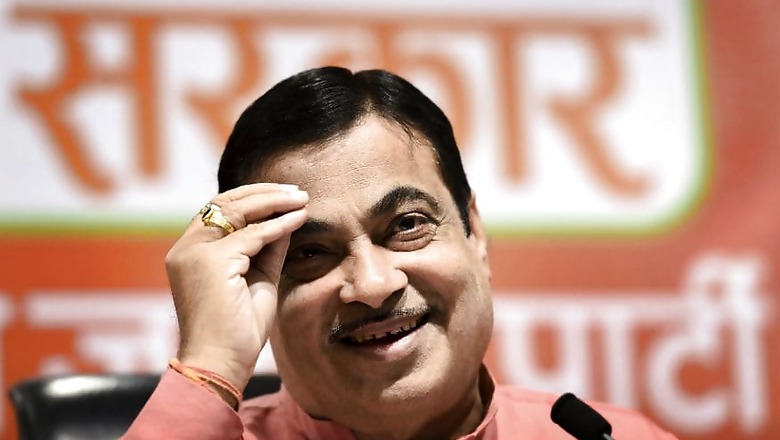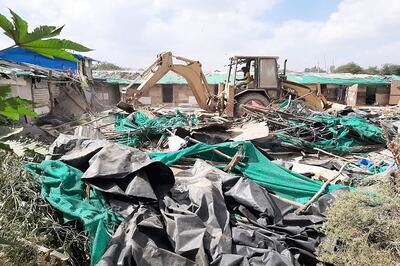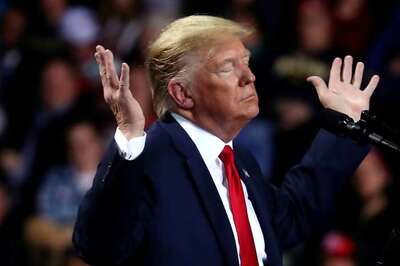
views
Predicting challenging times for higher education in the post-Covid world, union minister Nitin Gadkari gave suggestions to stakeholders on ensuring economic viability of universities so that the education "empires" don’t shut like some micro, small and medium enterprises (MSMEs), or become non-performing assets (NPAs). He proposed two measures: establishing linkages with the government and industries that can pay stipends to trainee students, and secondly bring foreign investment, like getting more foreign students and entering joint ventures with foreign universities.
The minister, who holds several portfolios including of MSMEs, was speaking in a webinar organised to discuss 'Impact of higher education in post-Covid economy'. The live interaction with the higher education committee of the Federation of Indian Chambers of Commerce and Industry (FICCI) was attended virtually by All India Council for Technical Education (AICTE) chairman Anil Sahasrabudhe, OP Jindal Global university vice-chancellor C Raj Kumar, founder of tech start-up upGrad Ronnie Screwvala and secretary general of the Association of Indian Universities (AIU) Pankaj Mittal among others.
Gadkari emphasised that international standards in education cannot be acquired on government funding. Like industries, higher education also has to work on economic viability, he said.
Foreign investment with universities and linkages with industry
The minister spoke on several issues ranging from increased salaries of teachers due to revised pay commission and said he was not sure of fee-paying capacity of the students. In his scheme of things, a student can be a trainee who can be employed as a substitute for a worker in any industry project. This can save the government or industry money and end up paying stipend to the student and get money for the university.
“There can be a model, where a university can enter ventures with the government and industry that can use manpower for projects. It can provide skilled and practical training. If industry has to give Rs 40,000 to someone for some expertise, it can instead have a student trainee on the job for Rs 10,000. This will give him experience. Many such schemes can be designed,” he said.
“Every contractor can see what percentage of trainee engineers can be utilised, and can work 6-8 hours, get practical training and stipend. The contractor will make savings and some money will go to the university. There is going to be big anxiety and our educational institution’s economic viability can be in danger as paying capacity might not be there.”
The second way forward, according to Gadkari, is foreign investment. “There should be foreign students in Indian campuses that pay in dollar. Indian universities must establish joint ventures with international players in education. If there is no investment there is no development, equipment,” he observed.
Indian universities, he said, can work with cooperation, coordination and communication.
The minister gave examples of how IITs and other institutes with funds worth crores can work on joint projects that can make education economically viable and earn the students some stipend.
Giving the example of IIT Madras that entered entered a joint venture with an Australian consultant on a project of the government, he said it helped the government save Rs 200 crore with the expertise of the institute’s manpower. He is mulling over extending a proposal to AICTE to rope in technical institutes in auditing traffic density and identifying black spots (accident-prone areas) for funds. The minister said that given the extent and coverage of his ministry, he can give work to 5,000 engineering colleges.
The move, he said, is important as like MSMEs “universities can also face problems and we might see auctions”.
'In India, education fokat ka (free)'
The minister said that in India everybody wants education for free and it is considered a “democratic right”. "If we depend on government expenditure, the higher education in India cannot acquire international standards. We have to look into the economic viability of higher education,” he said.
The need to do so is imperative in his opinion because “we don’t think education is business but also think that education is not charitable. We have to enhance the economic viability without any compromise in quality of education. Increase your earning – saving money is earning money, or the empires (universities) will become NPAs. Paying capacity is reducing. And this will lead to closures of campuses,” he warned.
The minister said that when the the industry is established, its economic viability is looked into and a profit-loss balance sheet is made. “But this kind of approach in education will be criticised here. The West has understood this approach, but here it will be difficult to convince people on these lines,” he said.




















Comments
0 comment